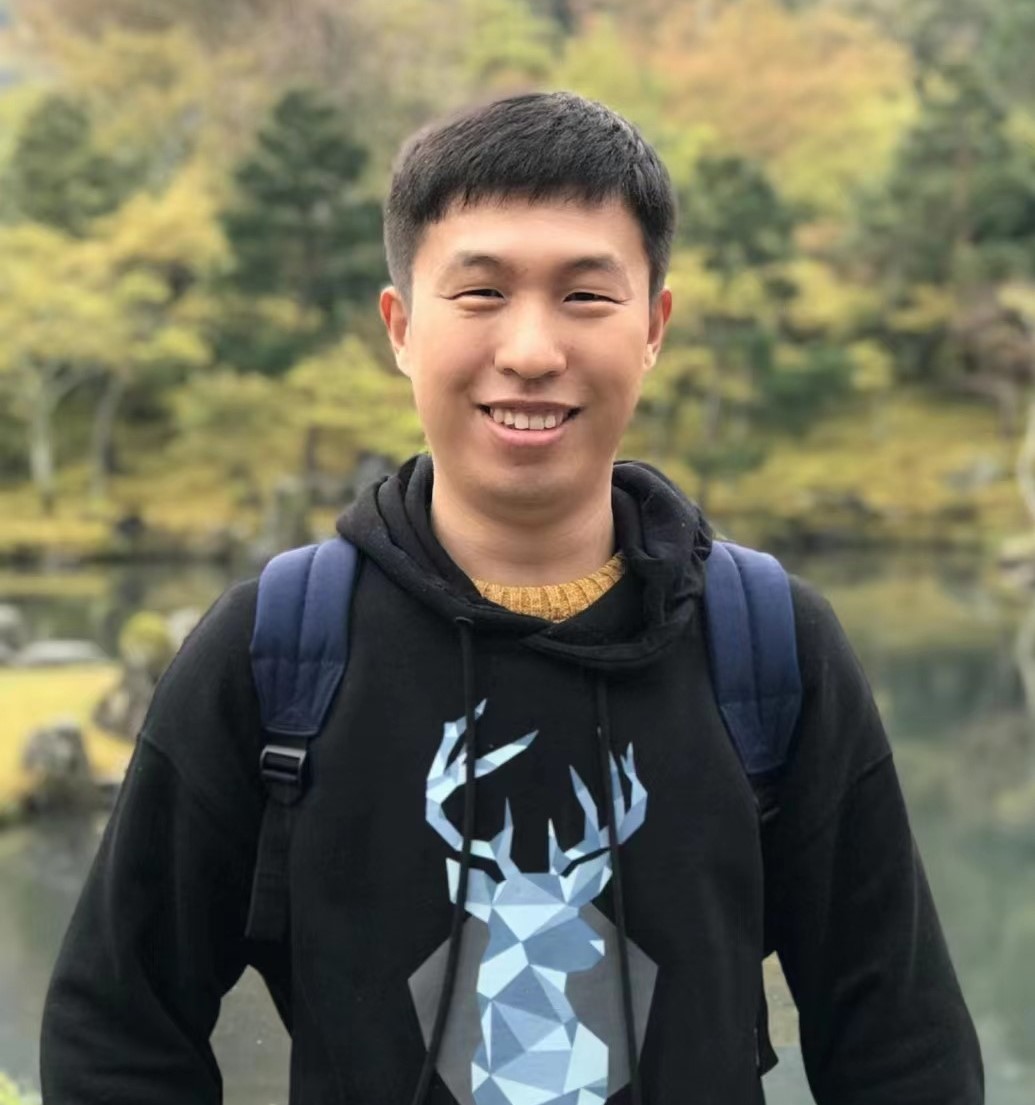
|
Peidong LiuAssistant Professor
Spatial Intelligence and Robotics Lab Welcome to follow our latest research on: Twitter, Github, Zhihu !! |
About
Dr. Peidong Liu is currently an Assistant Professor of Computer Science at Westlake University, Hangzhou, China. He got his PhD degree from the Department of Computer Science at ETH Zurich, under the supervision of Prof. Marc Pollefeys. He got both his master and bachelor degrees in Electrical Engineering from National University of Singapore. His research bridges 3D computer vision and robotics, focusing on visual spatial intelligence (SpatialAI) - developing algorithms that enable machines to perceive, understand, and interact with their 3D environment through visual data. Details are as follows:
- Perception: 3D/4D reconstruction and generation;
- Reasoning: 3D scene understanding and reasoning;
- Action: 3D vision for robot;
Recent news
| Nov 12, 2025 | Congratulations to Bangyan and Peng Wang on being awarded the National Scholarship (国家奖学金) and Su Wu Scholarship (苏武奖学金), respectively! |
|---|---|
| Sep 18, 2025 | 3 papers (1 spotlight) accepted by NeurIPS-2025. Congratulations to Qi Xu, Dongxu, Xiang Liu, Peng Wang, Wenpu and Bangyan! |
| Sep 3, 2025 | I will serve as an Area Chair for Conference on Computer Vision and Pattern Recognition (CVPR-2026)! Thanks for the invitation! |
| Aug 22, 2025 | I will serve as an Area Chair for International Conference on Learning Representations (ICLR-2026)! Thanks for the recommendation! |
| Aug 4, 2025 | Our paper on “MBA-SLAM: Motion Blur Aware Dense Visual SLAM with Radiance Fields Representation” is accepted by Transactions on Pattern Analysis and Machine Intelligence (T-PAMI). Congratulations to Peng Wang, Lingzhe and all other co-authors! |
Current group members
Senior researchers:
- Dongxu Wei: (Joined in June 2024) PhD from Zhejiang University
PhD students:
- Zhangchi Huang (2025 fall intake): bachelor from Xi'an Jiaotong University (Qian Xuesen Honors College)
- Zhenhua Du (2025 fall intake): bachelor and master from National University of Defense Technology
- Chengrui Dong (2024 fall intake): bachelor student from Northwestern Polytechnical University
- Yiming Chen (2024 fall intake): bachelor student from Tongji University
- Lingzhe Zhao (2024 fall intake): bachelor from Tongji University
- Bangyan Liao (2023 fall intake): bachelor from Hunan University
- Peng Wang (2022 fall intake): bachelor and master from Huazhong Science and Technology University
- Jian Huang (2022 fall intake): bachelor and master from Xi'an Jiao Tong University
- Zhiqi Li (2022 fall intake): bachelor from Shanghai Jiao Tong University
- Yunhao Li (2022 fall intake): bachelor from Xi'an Jiao Tong University, master from Northwestern University (US)
Adminstration assistant:
- Ruijie Ma: bachelor and master from Xidian University
Internships and visiting students:
- Xiang Liu: master student from ETH Zurich
- Qi Xu: master student from Wuhan University
- Wenpu Li: bachelor student from Guangdong University of Technology
- Haotian Shen: bachelor student from Westlake University
- Xinhao Lou: bachelor student from Westlake University
Selected publications
For more details, please refer to my Google Scholar page.
-
SIU3R: Simultaneous Scene Understanding and 3D Reconstruction Beyond Feature AlignmentIn Neural Information Processing Systems (NeurIPS) 2025Spotlight paper, (acceptance ratio: 3.1%)
-
Styl3R: Instant 3D Stylization Reconstruction from Arbitrary Scenes and StylesIn Neural Information Processing Systems (NeurIPS) 2025
-
E-MoFlow: Learning Egomotion and Optical Flow from Event Data via Implicit RegularizationIn Neural Information Processing Systems (NeurIPS) 2025
-
MBA-SLAM: Motion Blur Aware Dense Visual SLAM with Radiance Fields RepresentationTransactions on Pattern Analysis and Machine Intelligence (T-PAMI) 2025
-
CasualHDRSplat: Robust High Dynamic Range 3D Gaussian Splatting from Casually Captured VideosIn ACM International Conference on Multimedia (MM) 2025
-
Omni-Scene: Omni-Gaussian Representation for Ego-Centric Sparse-View Scene ReconstructionIn Computer Vision and Pattern Recognition (CVPR) 2025
-
IncEventGS: Pose-Free Gaussian Splatting from a Single Event CameraIn Computer Vision and Pattern Recognition (CVPR) 2025Highlights paper, (acceptance ratio: 3.1%)
-
Convex Relaxation for Robust Vanishing Point Estimation in Manhattan WorldIn Computer Vision and Pattern Recognition (CVPR) 2025Best Paper Finalist, Oral, 15 out of 13008 submissions
-
MVControl: Controllable Text-to-3D Generation via Surface-Aligned Gaussian SplattingIn International Conference on 3D Vision (3DV) 2025
-
DreamMesh4D: Video-to-4D Generation with Sparse-Controlled Gaussian-Mesh Hybrid RepresentationIn Neural Information Processing Systems (NeurIPS) 2024
-
BAD-Gaussians: Bundle Adjusted Deblur Gaussian SplattingIn European Conference on Computer Vision (ECCV) 2024
-
BeNeRF: Neural Radiance Fields from a Single Blurry Image and Event StreamIn European Conference on Computer Vision (ECCV) 2024
-
GlobalPointer: Large Scale Plane Adjustment with Bi-Convex RelaxationIn European Conference on Computer Vision (ECCV) 2024
-
RSL-BA: Rolling Shutter Line Bundle AdjustmentIn European Conference on Computer Vision (ECCV) 2024
-
Motion and Structure from Event-based Normal FlowIn European Conference on Computer Vision (ECCV) 2024
-
Event-Aided Time-To-Collision Estimation for Autonomous DrivingIn European Conference on Computer Vision (ECCV) 2024
-
Keypoint-Guided Efficient Pose Estimation and Domain Adaptation for Micro Aerial VehiclesIEEE Transactions on Robotics (T-RO) 2024
-
SCINeRF: Neural Radiance Fields from a Snapshot Compressive ImageIn Computer Vision and Pattern Recognition (CVPR) 2024Highlights paper (acceptance ratio: 2.8%)
-
USB-NeRF: Unrolling Shutter Bundle Adjusted Neural Radiance FieldsIn International Conference on Learning Representations (ICLR) 2024
-
BAD-NeRF: Bundle Adjusted Deblur Neural Radiance FieldsIn Computer Vision and Pattern Recognition (CVPR) 2023
-
MBA-VO: Motion Blur Aware Visual OdometryIn International Conference on Computer Vision (ICCV) 2021Oral presentation (acceptance ratio: 3%)
-
Deep Shutter Unrolling NetworkIn Computer Vision and Pattern Recognition (CVPR) 2020
-
Self-Supervised Linear Motion DeblurringIn Robotics and Automation Letters (RA-L) 2020
-
Project AutoVision: Localization and 3D Scene Perception for an Autonomous Vehicle with a Multi-Camera SystemIn International Conference on Robotics and Automation (ICRA) 2019
-
Efficient 2D-3D Matching for Multi-Camera Visual LocalizationIn International Conference on Robotics and Automation (ICRA) 2019
-
Towards Robust Visual Odometry with a Multi-Camera SystemIn International Conference on Intelligent Robots and Systems (IROS) 2018
-
Robust Dense Mapping for Large-Scale Dynamic EnvironmentsIn International Conference on Robotics and Automation (ICRA) 2018
-
Direct Visual Odometry for a Fisheye-Stereo CameraIn International Conference on Intelligent Robots and Systems (IROS) 2017